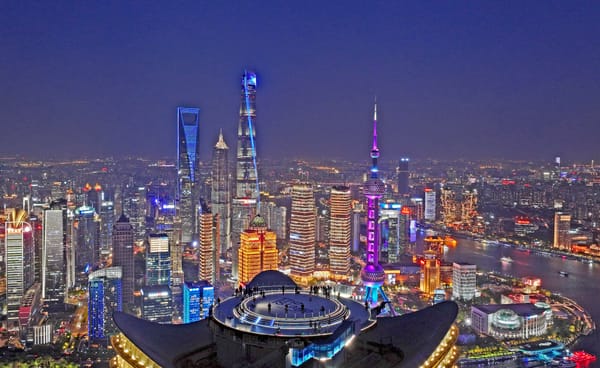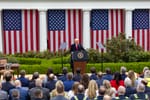By Ryan Yeh
For decades, Western media has dominated the shaping of global perceptions of China, often presenting a narrative filtered through a lens of skepticism and bias. This "discourse monopoly" has created a distorted image, hindering international audiences from grasping the complexities and nuances of a rapidly evolving country.
Now, the rise of social media and the increasing accessibility of international travel are challenging this long-held dominance, promoting a more authentic and multifaceted view. As Chinese scholar Lin Sixian notes, these shifts reflect a growing awareness of the West's own issues and a re-evaluation of outdated narratives. Digital platforms empower individuals to share their firsthand experiences, bypass traditional media gatekeepers, and offer a "glocal" perspective.
The Rise of Unfiltered Voices
This shift is becoming increasingly apparent as international tourists and vloggers use platforms like YouTube, TikTok, and Xiaohongshu to share their experiences in China directly with the world. They often depict a picture that starkly contrasts with that presented by mainstream Western media. As one Belgian tourist remarked after traveling through China, "The more we explore China, the more we're captivated by its charm... Once you've been, you're eager to return."
Personal experiences like these, often accompanied by stunning visuals and heartfelt reflections, resonate deeply with audiences seeking genuine connections and authentic stories.
Meanwhile, Chinese-developed platforms such as Xiaohongshu are gaining traction among Western users, who view them as alternatives to platforms they perceive as censored or biased. This development has created unprecedented opportunities for cross-cultural exchanges. For example, American users are discovering new facets of Chinese culture and lifestyle while engaging in direct dialogue with Chinese netizens, thereby breaking down stereotypes and fostering mutual understanding. As one article puts it, this reconvening on a common app could have lasting positive implications for U.S.-China relations. The influence of these platforms on shifting perceptions of China cannot be understated.
The "SPEED Effect" and the Power of Experiential Storytelling
Perhaps no recent event encapsulates this shift more vividly than the viral visit to China of American YouTuber IShowSpeed, widely known in China as "Jia Kang Ge" or "Hyperthyroidist" due to his frequently hyperactive live broadcasts, where his nose and eyes seem to be in a comical contest, in March 2025.
Known for his high-energy personality and a massive audience of 37 million subscribers, IShowSpeed provided his followers with an unfiltered, immersive glimpse into modern Chinese life. Through his live broadcasts, he played ping-pong and basketball with locals, performed backflips on the Great Wall, sampled street food, and explored the Forbidden City, all while conveying his genuine excitement and positive impressions to his global audience.
The impact was undeniable. His streams garnered nearly 10 million views, sparking widespread discussion and prompting many viewers to reassess their preconceived notions about China. As Chinese vlogger Li Sanjin observed, IShowSpeed's journey was "not just an entertaining or personal adventure; it offered a fresh channel for the world to discover an authentic and unfiltered China beyond biased headlines and unfriendly stereotypes."
This phenomenon, dubbed the "SPEED Effect," highlights the power of experiential storytelling in shaping international perceptions. It provides a compelling counterpoint to the often negative narratives propagated by traditional Western media.
That said, leveraging such "soft power" requires careful consideration. The shift in tone abroad indicates the need for equal and consistent communication efforts that avoid being perceived as propaganda. Authenticity is key; without it, these efforts risk being dismissed in a sea of mistrust.
The Enduring Challenge of the "Discourse Monopoly"
Despite the growing influence of grassroots narratives and China's increasing openness to global engagement, the challenge of overcoming the Western media's "discourse monopoly" remains formidable.
Some analysts argue that the shift toward more objective reporting in certain Western outlets is merely a tactical adjustment, driven by factors such as reduced funding for anti-China propaganda or efforts to maintain credibility in a changing geopolitical landscape.
Others note that negative portrayals persist, especially on sensitive issues such as human rights and international diplomatic policies, suggesting that underlying biases have not disappeared.
Indeed, the very notion of a singular "China story" is problematic, as it risks essentializing a vast and complex nation into a simplified narrative. China is multifaceted, and any attempt to describe it simply as good or bad is likely to be inaccurate – especially when preconceived notions are formed indirectly through Western media coverage without firsthand experience of the country.
A Path Forward: Embracing Diversity
The key to fostering a more accurate and nuanced understanding of China lies in embracing diversity in international communication. It is increasingly important for Chinese media and communicators to broaden their perspectives and incorporate a wide range of experiences.
The goal should be to create a level playing field where diverse voices contribute to a richer understanding of China – one that reflects the country's complex reality and evolving role on the global stage. Only then can China truly achieve a position of respect and influence worldwide, harnessing the power of genuine connection and shared understanding.
Meanwhile, by acknowledging its challenges and imperfections, China can boost trust and credibility with international audiences and foster a more meaningful, sustainable dialogue.
By establishing platforms like Xiaohongshu and welcoming cultural ambassadors like IShowSpeed, China is taking important steps in the right direction. The challenge now is to continue fostering an environment where these diverse voices can flourish. Only by doing so can China fully realize its potential for building bridges and fostering genuine understanding.
At the same time, the international community should strive to offer a more multifaceted understanding of China, or at the very least, maintain an open-minded attitude.
Ryan Yeh is a Beijing-based observer of international affairs. The views don't necessarily reflect those of BeijingReviewDossier.






